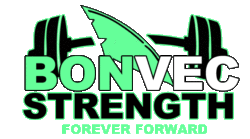 The sport of powerlifting serves as a nice little metaphor for life. You’re competing against others, but you’re really competing against yourself. You do a ton of work for a big payoff. And there are aches and pains, but it’s all worth it in the end.
The sport of powerlifting serves as a nice little metaphor for life. You’re competing against others, but you’re really competing against yourself. You do a ton of work for a big payoff. And there are aches and pains, but it’s all worth it in the end.
This weekend, I had the honor of coaching three amazing ladies from the Cressey Sports Performance women’s powerlifting team at their first full powerlifting meet. Not only did these ladies make tremendous strides in their lifts, but also in their mental approach to competing. I’ve enjoyed watching them grow from lifters into true competitors. Their mindset shift has been palpable. Aside from being strong and technically proficient at the lifts, they’ve developed a handful of intangible traits needed to be successful in powerlifting.
Just like any other aspect of your life – your career, your family, your eduction, etc. – it takes more than skill to rise to the top. You need a strong mind and the right attitude. These three characteristics, if you choose to development them, can take you from good to great:
1. QUIET INTENSITY
After the first flight of squats, I had a deep conversation with Artemis Scantalides about how different lifters psyche themselves up before an attempt. Some scream and yell. Some smack themselves in the head. Others are stone-faced and do nothing at all.
If there’s one thing I’ve learned about psyching up for a lift, it’s that the best lifters are almost always the most level-headed lifters. Energy spent getting psyched up is often energy wasted. That energy would be better spent lifting the weights rather than throwing a tantrum.
However, being an emotionless robot isn’t ideal either. Artemis likened lifting to martial arts. Her background in Kung Fu taught her that quiet intensity allows you to harness your energy into your physical craft. While performing Kung Fu, you can’t scream and yell at your competition. You can’t argue with your instructor. But you can, as Artemis said, be screaming with rage on the inside, as long as you quietly harness that energy into your physical task.
2. CONTROLLING WHAT YOU CAN CONTROL
Long ago, I learned an important lesson: life is 10 percent what happens to you and 90 percent how you respond to it. In other words, you must learn to control what you can control and let go of everything else.
I first put this lesson to use as a baseball player, and now I’m finding it especially useful as a powerlifter and coach. As a lifter, you can only control a few things:
- Your technique
- Your attitude
- Your effort
You CANNOT control:
- The judges
- The spotters
- The equipment
- The venue
- The crowd
The judges might miss some calls. A spotters may misload the bar. The bars, squat racks and benches might be different than the ones you train with. The venue might be too crowded (or only have one bathroom for 100-plus nervous and overly-caffeinated lifters). The crowd might be distracting. But guess what? You can’t control any of that. You’ve gotta put that all aside and focus on the few things you CAN control.
Hilary, a first-time competitor, worked hard over the past year to improve her squat depth. She couldn’t control the fact that the judges called her opening squat no good due to depth. She COULD, however, control her response. She could have thrown a fit, cursed out the judges and wasted her energy. Instead, she regrouped, sank her next attempt and made a good lift. I watched seasoned veterans and world record holders turn into whiny toddlers when calls didn’t go their way, yet a lifter with less than a year of experience knows better than to waste energy on something she can’t control.
Another one of our lifters, Celie, hit a PR on her second deadlift with a 275 pull. Without asking her, I told the scorer’s table to put 300 on the bar for her third attempt. She’d told me that was her long term goal, and she had the momentum going to hit it today. As Celie approached the platform, she was surprised by the weight but it was too late to turn back. She could have panicked, but instead, buckled down and pulled the heaviest deadlift of any female lifter in her flight.
https://www.instagram.com/p/BFceDvdmUDv/
3. SEEING THE BIG PICTURE
Few endeavors embody the notion of “slow and steady wins the race” quite like powerlifting. It takes months of careful planning and intense training to improve, and the improvements are often small. In fact, the stronger you get, the slower the gains will come.
The ability to see the big picture and appreciate every small improvement is essential to staying sane and motivated as a powerlifter. If you want instant gratification, pick another sport.
Hilary told me she wants to deadlift 300 pounds before she hits a major birthday milestone. I know she’ll get there, especially considering that today, she pulled 260 pounds and less than a year ago, couldn’t budge 200 off the floor without looking like a candy cane. She’s been incredibly patient and more than once agreed to take a step back to take two steps forward. Many people would have run out of patience, but she “gets it” and appreciates how steady progress adds up in the long run.
Every training cycle and competition provides unique challenges. Life likes to throw us curveballs too. Jobs, kids, illnesses – tons of things can throw off your meet preparation. Anyone can crush it when you’re in the perfect situation, but not everyone can stand up on a platform and perform when life is trying to do everything possible to prevent you from doing so.
Your ability to appreciate your efforts despite adverse circumstances is often more important than your ability to excel when all the stars align. See the big picture, appreciate how far you’ve come, and learn from every success AND mistake.
WHAT ARE YOU MADE OF?
Anyone can be strong or have great technique with enough training. However, not everyone can be a great competitor. It takes mental fortitude and a solid mindset to perform to the best of your ability on meet day. Do you have these three intangible traits? If not, you’ll want to practice more than squatting, benching and pulling before your next meet.


